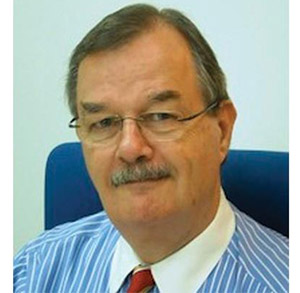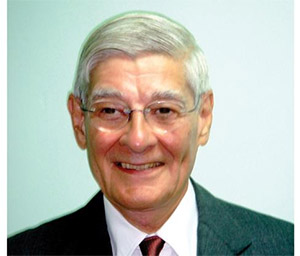Fizzy drinks excise tax threat falls flat

The American Chamber of Commerce and Vietnam Chamber of Commerce and Industry have promoted debate on the tax
France introduced a similar tax in January 2012 which prompted foreign companies to reconsider their investments. Domestic companies also plan to raise product prices in Vietnam in response, further limiting consumer choice. With these facts taken into account, the imposition of a tax on carbonated soft drinks may not have a hugely beneficial effect.
VIR spoke to Herb Cochran, executive director of AmCham Vietnam (Ho Chi Minh City) and Sesto Vecchi, managing lawyer, Russin & Vecchi to shed more light on the issue.
 Herb Cochran is executive director of AmCham Vietnam (Ho Chi Minh City). Before joining AmCham, Herb was commercial attaché at the US Embassy in Hanoi and the US consulate general in Ho Chi Minh City, regional director, East Asia and Pacific, the US Department of Commerce, based in Washington DC and commercial attaché in Osaka, Tokyo, and Bangkok successively.
Herb Cochran is executive director of AmCham Vietnam (Ho Chi Minh City). Before joining AmCham, Herb was commercial attaché at the US Embassy in Hanoi and the US consulate general in Ho Chi Minh City, regional director, East Asia and Pacific, the US Department of Commerce, based in Washington DC and commercial attaché in Osaka, Tokyo, and Bangkok successively.
Since the Ministry of Finance’s (MoF) excise tax draft amendment was published for public consultation, several concerns have been raised about tax and the impact it could have on production and consumer choice. What's your opinion on this?
First, we appreciate the opportunity for discussion and consultation. We have had opportunities to meet and discuss the issue with the MoF, the Ministry of Health, the Ministry of Planning and Investment, and at the forum held on March 28. We look forward to another opportunity for discussion in Ho Chi Minh City on April 11.
With the perspective on the democratic and transparent policy-making process, as “the state must ensure and bring into full play the real mastership right of the people, particularly the right to participate in the policy-making process”, let’s talk about the consumers first. Excise taxes are designed to be imposed on luxury goods, products and services used by high-income consumers. Later, such taxes were imposed on goods that pose a health or environmental risk. But they were never imposed on basic needs. That is how the tax is supposed to work, to maintain a balance between the imposition of charges between low-income consumers and high-income consumers, between consumers with healthier habits and those without them. Therefore, imposing excise taxes on an everyday product such as a fizzy soft drink is tremendously unfair to the average consumer.
In terms of the broader perspective, companies that manufacture alternative products to carbonated soft drinks such as juice or milk will gain significant advantages over those that manufacture carbonated soft drinks. This would create a hugely unfair market if the new tax is put into practice. In addition, Vietnam has commitments with many countries which may be forced to reconsider their agreements with Vietnam in circumstances where the domestic state of the market experiences a significant change.
But it’s obviously true that the new tax will raise significant tax revenues, isn’t it? It would allow the Vietnamese government to collect more taxes and therefore spend more on services?
Excise taxes are levied upon unit costs. The manufacturer will then have two primary choices, either raise the retail price to maintain profits which will hurt consumers and in turn reduce consumption, or try to adjust prices to a rate that would be acceptable to both sides, which would mean lower profits. In both cases, the government revenue from value added tax and corporate income tax is consequently reduced. Therefore, the actual financial benefit in terms of government revenue from excise taxes on carbonated soft drinks would be much less than the MoF expects. In a market economy, higher prices mean lower consumption. It is estimated that a price increase of 10 per cent for such drinks would cause consumption to fall by more than 20 per cent.
 Sesto Vecchi manages the Vietnam Practice Group at Russin & Vecchi’s Ho Chi Minh City office. Sesto has lived and practiced law in Vietnam for nearly 30 years. He is on the Board of Governors of the American Chamber of Commerce in Ho Chi Minh City. He graduated with a BS in Economics from the Wharton School of the University of Pennsylvania, and received his law degree from Temple Law School. He is a member of the bars of New York and Washington, DC.
Sesto Vecchi manages the Vietnam Practice Group at Russin & Vecchi’s Ho Chi Minh City office. Sesto has lived and practiced law in Vietnam for nearly 30 years. He is on the Board of Governors of the American Chamber of Commerce in Ho Chi Minh City. He graduated with a BS in Economics from the Wharton School of the University of Pennsylvania, and received his law degree from Temple Law School. He is a member of the bars of New York and Washington, DC.
The Vietnamese Ministry of Finance has recently drafted a bill that would see carbonated beverages be subject to an excise tax due to the assumption that carbonated drinks are detrimental to health, and therefore should be regulated. The ministry has opted to tax carbonated beverages, instead of sugar-sweetened beverages like other countries. What's your opinion on this?
This is a tax on carbonated beverages. Sweetened drinks without CO2 will not be taxed under this proposal. This makes it a very strange and unusual tax. No other country in the world singles out CO2 for taxation. A few countries do have excise taxes on high-calorie drinks, but no country taxes drinks just because they contain CO2. There is no research that supports the claim that CO2 causes health problems. In fact, medical research shows that CO2 is actually good for your health. CO2 gas expands in your stomach. This makes you feel full faster, so you don’t eat as much. When you drink sweetened tea or fruit drinks without CO2, you don’t feel so full because the drink has no CO2 to expand in your stomach, so you eat and drink more.
There have been opinions that imposing excise tax on carbonated drinks will aid the growth of domestic companies, since most carbonated beverages in Vietnam are supplied by foreign companies. Do you think this tax may actually affect competition in the market?
American companies specialise in drinks with CO2. These drinks are a US cultural product, soft carbonated drinks were invented in the US, and almost all of the popular soft drinks (even foreign-branded sodas) are made using American recipes. Vietnamese companies do not specialise in fizzy drinks, they mostly make fruit juice, coffee, and tea. This tax is not about health, it is about giving the Vietnamese companies that make non-carbonated drinks, such as juice, coffee, and tea, an unfair advantage over American companies that make carbonated drinks.
Supposedly this excise tax actually increases domestic trade, do you think it will aid economic growth? Is there any potential consequence we would like to avert?
International organisations like the IMF have issued guidance for countries on how to draft fair and smart excise taxes policies. The IMF says that to avoid burdening the poor, countries should only tax luxury items or products that cause serious social evils like tobacco, alcohol, and gambling. Poor consumers spend a bigger percentage of their income on food and drinks, so tax policy experts normally discourage countries from taxing food or non-alcoholic drinks. In the case of drinks with CO2, these drinks are very popular with young people, who usually don’t have as much money as older consumers. Because of this, we believe this tax would not be fair, as it would be paid mostly by young, non-wealthy consumers.
How do you think other countries will respond in case the new excise policy is passed by Vietnam’s National Assembly?
The CO2 tax would violate Vietnam’s international commitments by discriminating against a foreign product. In recent years, Vietnam has signed many free trade agreements, with the US, with the WTO, and with ASEAN countries, for example. These trade agreements have been enormously helpful to Vietnam’s economy. Thanks to international trade, Vietnam’s economy has grown faster than almost any other country in the world over the past 20 years. If Vietnam starts violating its treaties, however, this could damage Vietnam’s reputation and Vietnam’s trade with the world could decline.
This tax is very clearly designed to discriminate against carbonated drinks, a foreign product. We know that sometimes other countries try to get away with breaking their trade commitments to create an unfair advantage, but this does not mean Vietnam should do it. We think the better strategy is for Vietnam to demonstrate its firm commitment to its promises, as this will give Vietnam strong moral backing when it asks its trade partners to keep their promises too.
| AmCham established the Food & Beverage Committee in August 2013, in recognition of the major contribution the food and agriculture sector in Vietnam makes to the country’s GDP. We would like to encourage the US and Vietnamese governments to co-operate on technical assistance programmes to help Vietnam’s food associations and companies meet US Food and Drug Administration and US Department of Agriculture testing and certification requirements for food and beverage products. This will be even more important when the Trans-Pacific Partnership is concluded and comes into effect. Much of our strategic focus is on food and beverage quality, safety, and labelling, and to help maintain understanding, transparency, and regulatory coherence under commitments made in international agreements such as the WTO and the ASEAN Economic Blueprint 2015. These agreements are to assure that consumers are being supplied with food and beverages that are safe, and that health and safety measures are not being used as an excuse for protecting domestic producers. AmCham particularly wishes to promote the competitiveness of the sector by co-operating on supporting technical assistance to implement Vietnam's international agreements. |
What the stars mean:
★ Poor ★ ★ Promising ★★★ Good ★★★★ Very good ★★★★★ Exceptional
Latest News
More News
- State corporations poised to drive 2026 growth (February 03, 2026 | 13:58)
- Why high-tech talent will define Vietnam’s growth (February 02, 2026 | 10:47)
- FMCG resilience amid varying storms (February 02, 2026 | 10:00)
- Customs reforms strengthen business confidence, support trade growth (February 01, 2026 | 08:20)
- Vietnam and US to launch sixth trade negotiation round (January 30, 2026 | 15:19)
- Digital publishing emerges as key growth driver in Vietnam (January 30, 2026 | 10:59)
- EVN signs key contract for Tri An hydropower expansion (January 30, 2026 | 10:57)
- Vietnam to lead trade growth in ASEAN (January 29, 2026 | 15:08)
- Carlsberg Vietnam delivers Lunar New Year support in central region (January 28, 2026 | 17:19)
- TikTok penalised $35,000 in Vietnam for consumer protection violations (January 28, 2026 | 17:15)
















 Mobile Version
Mobile Version